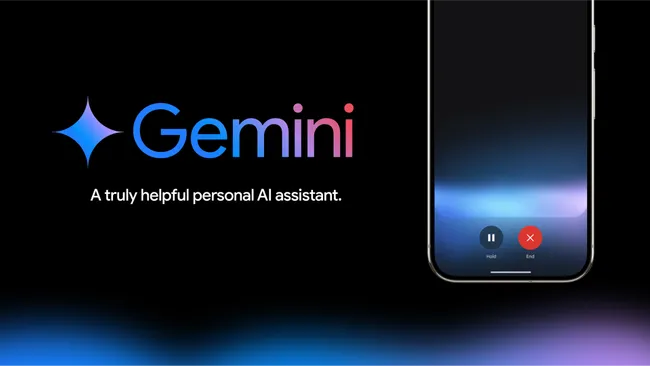The world of Artificial Intelligence (AI) is heating up as we approach 2025. In this post, we’ll explore Google Gemini, a groundbreaking AI project that’s making waves in the tech industry. Sundar Pichai, Google’s CEO, has confidently positioned Gemini as a game-changer in this competitive landscape. With AI becoming the backbone of technological progress, this race isn’t just about innovation—it’s about leading the future.

Table of Contents
Introduction to Google Gemini
Google Gemini is Google’s latest AI initiative, designed to revolutionize how machines understand and process information. It’s a blend of advanced large language models and powerful machine learning systems, built to outperform its competitors. Gemini promises to be smarter, faster, and more intuitive, making it a central focus for AI enthusiasts worldwide.
The 2025 AI Race

The competition to dominate the AI industry has never been fiercer. Companies like OpenAI, Microsoft, and Meta are investing billions to create next-generation AI systems. As we approach 2025, the race is no longer about who’s participating but about who can deliver the most advanced and impactful technology. With the stakes so high, AI dominance will shape the future of industries ranging from healthcare to entertainment.
Sundar Pichai’s Vision
Sundar Pichai has boldly stated that Gemini is more than just another AI project—it’s Google’s answer to the growing demand for smarter and more efficient AI systems. He believes Gemini can redefine how people interact with technology, setting a new benchmark for AI capabilities.
Why AI Dominance Matters
In today’s tech-driven world, leading the AI race is about more than prestige—it’s about setting the course for the future. Dominating AI means controlling the tools that power innovation, from personalized user experiences to solving global challenges.
Google’s Current Position
This talks about where Google stands right now in the field of Artificial Intelligence (AI). Google is one of the biggest tech companies in the world, and it’s been working hard to create smart AI tools. However, it faces tough competition from other companies, like OpenAI.
Google’s Past Leadership in AI
In the past, Google was a leader in AI. They made important breakthroughs and developed amazing technologies, like Google Assistant and the AI used in Google Search. This shows they’ve been doing great things in AI for a long time.
Acknowledgment That Gemini Lags Behind ChatGPT and OpenAI
This means Google admits that its new AI project, called Gemini, is not as advanced as ChatGPT, which is created by OpenAI. Even though Google is good at AI, sometimes others come up with better tools faster.
Sundar Pichai’s Perspective: “Being First Isn’t Always Necessary, but Being the Best Is Key”

Sundar Pichai, the CEO of Google, believes that it’s not important to be the first to make something new. What really matters is creating the best version of it. He’s saying that Google doesn’t need to rush, as long as they work hard to build the best AI possible.
Challenges for Google Gemini

Google Gemini is a new technology that competes with other tools like ChatGPT. But it faces some challenges in becoming popular. One big issue is that many people already know and trust ChatGPT more than Gemini. This is a problem because people are more likely to use something they’re familiar with. For Google Gemini to succeed, it needs to overcome this challenge and show that it can offer something special.
Public Perception Favoring ChatGPT Over Gemini
When people think about AI (like ChatGPT), they often think of ChatGPT first because it’s been around longer and has a lot of users. This gives ChatGPT a huge advantage. Gemini, being newer, has to convince users that it’s just as good, if not better. Public opinion plays a big role in how much people trust and use a product, so if Gemini is going to gain more users, it needs to change how people see it.
The Technical Advancement of Gemini 1.5 vs. GPT
Gemini 1.5 is the latest version of Google’s AI, and it’s competing with the advanced technology behind ChatGPT (like GPT-4). While Gemini 1.5 might have some cool new features or improvements, it still needs to catch up in certain areas. For example, GPT-4 is already very well-known for being good at understanding and responding to complex questions. Gemini 1.5 has to prove it can keep up with or even improve on this technology to win over more users.
The Importance of Changing User Opinions and Increasing Trust in Gemini
For Gemini to be successful, it needs to build trust with its users. Right now, many people might not trust it as much as they trust ChatGPT because they haven’t used it enough. Google has to work on convincing people that Gemini is reliable and can meet their needs. This could mean improving the technology or offering features that make Gemini stand out. Changing user opinions is key for Gemini to gain more popularity and succeed in the long run.
Competitors: Meta and Apple
When we talk about the big companies that are working on artificial intelligence (AI), two of the biggest names are Meta and Apple. Let’s break down what each of them is doing in this field:
Meta
Meta is a company that owns popular apps like Facebook, Instagram, and WhatsApp. Recently, they have invested a lot of money into AI. They are working on using AI in their apps, building smart glasses, and developing virtual reality (VR). However, Meta is facing a challenge because they are trying to do too many things at once. Sometimes, their AI projects are not as focused, which can make it hard to see big results in a short time.
Apple
Apple, on the other hand, started slowly with AI. They didn’t dive into it as quickly as Meta, but now they are gradually adding AI to their products, like Siri (their voice assistant) and other features in their ecosystem (iPhones, Macs, etc.). Apple’s approach to AI is more careful and steady. While they are not rushing, they might have the potential to redefine AI in the future because of their methodical and thoughtful way of integrating it.
In simple terms, Meta is going all-in with AI, but sometimes it can get a bit messy. Apple is taking a slower and steadier approach, but it could end up having a bigger impact in the long run. Both companies are trying to lead the way in AI, but they are doing it in different ways.
Why the AI Race Matters
The AI race is about which companies or countries can develop the best Artificial Intelligence (AI) technology. Winning this race is important because AI can change how we do almost everything, like how we work, communicate, and make decisions. The winners will have the power to set new standards that everyone else might have to follow. So, it’s not just about being first—it’s about shaping the future of technology.
The Impact of Winning the AI Race: Setting Future Standards and Platforms
If a company or country wins the AI race, they can set the rules for how AI will be used in the future. This includes making platforms where people can build new AI applications, similar to how social media platforms like Facebook or Instagram set the standards for how we connect online. By leading in AI, they could influence things like how businesses use AI, how governments regulate it, and how society reacts to it.
Google’s Plan to Position Gemini as a Universal Assistant
Google is working on an AI tool called Gemini. They want Gemini to be a “universal assistant,” meaning it can help with almost anything you need—just like a personal assistant would. Google hopes that by making Gemini super helpful and easy to use, it can become the go-to assistant for anyone using AI. Whether you need help with work, school, or even managing your day-to-day tasks, Gemini could be the AI that people turn to for everything.
Sundar Pichai’s Focus on Urgency and Speed
Sundar Pichai, the CEO of Google, wants the company to move quickly and make decisions faster. He believes that in today’s fast-changing world, it’s important to act urgently and keep up with new trends, especially in technology. So, he encourages Google to innovate quickly and deliver results without wasting time.
Vision to Solve Real User Problems with AI by 2025
Google’s big goal is to use Artificial Intelligence (AI) to solve real problems that people face. They want AI to help improve everyday tasks for users. By 2025, Google hopes that AI will be able to assist in many ways, such as making search results smarter, improving online safety, and even helping in healthcare or education.
The Stakes: Maintaining Leadership in a Disruptive Industry
The tech industry is constantly changing, and there are new companies and technologies emerging all the time. Google’s strategy for 2025 is focused on staying at the top, maintaining its leadership, and adapting to these changes. If Google doesn’t keep up, other companies might take over. So, it’s important for Google to stay ahead of the curve and keep offering new, valuable solutions.
In simple terms, Google’s strategy is about staying fast, staying innovative, and making sure they use technology to help people, all while staying ahead of competitors.
Conclusion
To wrap it up, we’ve talked about how two big AI companies, Google’s Gemini and OpenAI’s ChatGPT, are fighting for the top spot in the AI world. Each company has its own strengths, and we’ve seen how both are pushing the limits of what artificial intelligence can do.
The big question is: Can Gemini catch up and take the lead? It’s possible! With Google’s huge resources and tech skills, Gemini has the potential to rise and challenge ChatGPT’s dominance. But, ChatGPT is already ahead in some areas, so it’ll be interesting to see how things play out.
In the end, the battle between these two AI giants is high-stakes. They’re not just competing for the top spot, but also shaping the future of AI technology. It’s exciting to think about where this battle might take us next!


